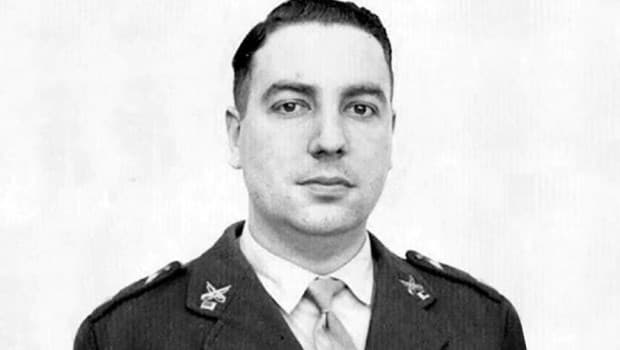ROME – With the consent of Pope Francis, the Vatican authorized its preliminary investigation into whether an Argentine military officer, kidnapped and allegedly killed by a Marxist group in the 1970s, was a martyr.
Colonel Argentino del Valle Larrabure was kidnapped in 1974 by the People’s Revolutionary Army (ERP) and kept for a year in a windowless cell in the central city of Rosario. The Argentine authorities say he was then killed by the Marxist group, although the militants claimed he committed suicide.
The initiative for Larrabure’s canonization came from a group of Argentinian lay people, including some active and retired members of the army, who sent the request to the Archdiocese of Buenos Aires, formerly led by Pope Francis. Since he was a member of the military, the request was forwarded to the military diocese, headed by Bishop Santiago Olivera.
Olivera is also the delegate of the Argentine bishops’ office for the Causes of Saints.
Speaking to the local web-based news organization Infobae, he said that “once this preliminary stage is completed and we close it, and the consultation is sent to the Vatican, the formal response from the Holy See will tell if there are no obstacles for the process to begin. That is why I insist that this is a preliminary stage.”
Larrabure was a military officer who held the position of deputy director of the Military Factory of Gunpowder and Explosives in Villa María, Córdoba, some 350 miles from Buenos Aires. The factory was assaulted by the ERP on Sunday, August 11, 1974. The terrorists captured Larrabure and held him captive for 372 days in a windowless bunker, where he was allegedly tortured until his death in 1975.
The incident came the year before the coup d’état that overthrew Isabel Peron, who succeeded her husband, General Juan Domingo Peron.
Larrabure was on record saying that the worst democratic government is better than a military one.
Some 9,000 people, members of the ERP and the leftist guerrillas known as Montoneros, were killed or “disappeared” by the military during the country’s Dirty War. In turn, the guerrillas murdered 1,355 civilians and killed some 600 military personnel.
In 2006, under the presidency of Nestor Kirchner, the Argentine government re-opened its investigations on crimes against humanity and genocide during the period of military rule and began the prosecution of military and security officers.
Larrabure’s ordeal was recorded in a diary he wrote in captivity, which a guerrilla member later sold to a magazine in 1977.
Isabel Peron refused to negotiate Larrabure’s release, arguing that the Argentine State would not negotiate with terrorists.
His son Arturo Larrabure, who was 15 years old at the time of the kidnapping and 16 when his father died, said that during his captivity, the soldier got closer and closer to God, aware that he was not going to get out alive: The government was not going to negotiate his release, and he refused to work for the guerrillas, who wanted him to make explosives to then use against the military and civilians.
Olivera, for his part, affirmed that Larrabure “was a man who called for forgiveness, not revenge and not hatred. I think it is important to study and see” if he can be acknowledged as a martyr.
The martyrdom that Larrabure recounts in his diary is the main pillar of the request for his canonization.
“I believe he can be a martyr because of the way he embodied the faith, precisely because he was coherent, because he was a courageous witness, because he gave his life in order not to give up his values,” Olivera said. “He did not let himself be tempted and lived forgiveness; he did not fill himself with hatred. It is important to understand this.”
“His message is the incarnation of the gospel and by living that surrender without limits, to the extreme, he could be considered,” the bishop said. “That will be defined by the church; we do not anticipate the church’s judgment, but we believe he could be a model and a reference.”
The day his mother Carmen Conde died, the officer wrote in his diary: “I quietly pray asking God not to abandon me in a humiliating madness. I want to die like the quebracho tree, which when it falls makes a noise that shakes the tranquility of the mountain. I want to die on my feet, invoking God, my family, my country, my army, my people, uncontaminated with ideas soaked in dissociation and blood (…) I feel the laxity of having captured a farewell message from a very dear one. Perhaps my wife, my mother, my children, my siblings… I am sure, convinced, that a mournful event has struck my family.”
His son has been fighting for years for the Argentine justice system to recognize his father’s murder as a crime against humanity. The case is currently before the Supreme Court.
“I think it clearly is because there is kidnapping, torture, death,” Arturo said. “Justice should rule in favor of all this and it would be an act of strict justice. But the justice of men is not the same as the justice of God, in this case from the hand of Monsignor (Olivera) and from the hand of the consent of Pope Francis.”
Follow Inés San Martín on Twitter: @inesanma













